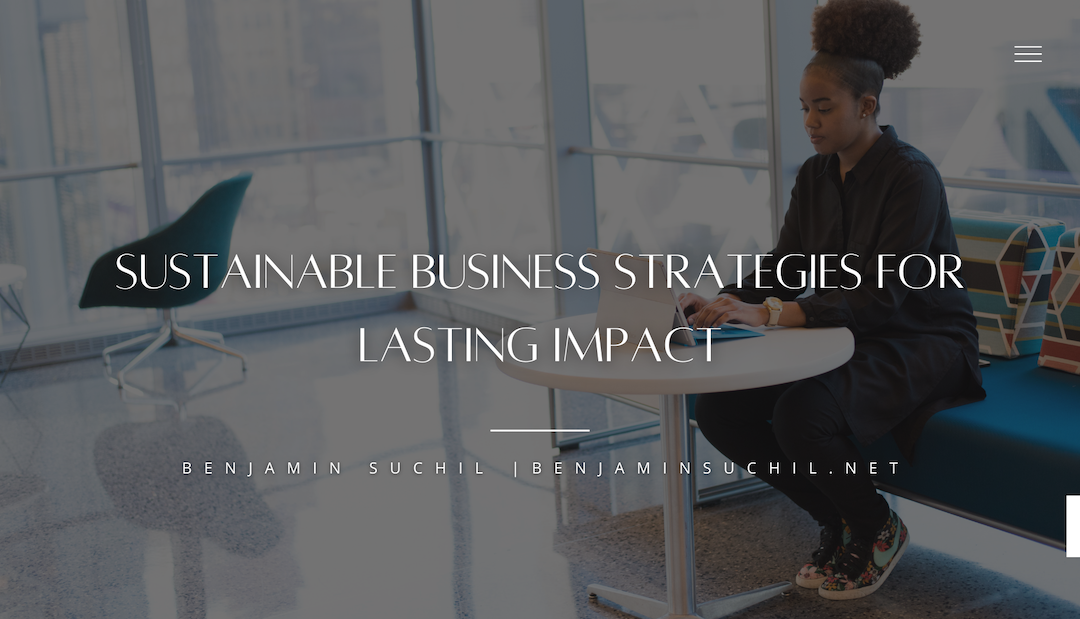Businesses are pivotal in shaping a sustainable future in an era of environmental problems and social consciousness. The pursuit of profit is no longer enough; companies now strive to create positive impacts on the planet and society. Sustainable business strategies have emerged as a cornerstone of responsible entrepreneurship, fostering economic growth and lasting societal benefits.
Embrace Circular Economy Principles: A fundamental aspect of sustainable business strategies is adopting circular economy principles. Instead of the standard linear model of “take, make, dispose,” a circular economy seeks to minimize waste by promoting reuse, recycling, and resource efficiency. Companies can design products for longevity, repairability, and recyclability, reducing their environmental footprint and contributing to a more sustainable future.
Prioritize Environmental Stewardship: Environmental responsibility should be woven into the fabric of every business. Implement energy-efficient practices, minimize water usage, and reduce greenhouse gas emissions. Renewable energy sources can significantly reduce your carbon footprint. Embrace sustainable sourcing by opting for eco-friendly materials and ensuring responsible supply chain practices that minimize negative environmental impacts.
Promote Social Equity: Sustainability isn’t solely about environmental considerations; it encompasses social equity as well. Implement fair labor practices, uphold human rights, and promote diversity and inclusion within your workforce. Engage in community development initiatives that contribute positively to local societies, fostering a sense of shared responsibility and collaboration.
Transparency and Ethical Practices: Build trust with consumers by prioritizing transparency. Communicate your sustainable initiatives, progress, and challenges openly. Adopt ethical business practices that resonate with conscious consumers. Fair Trade or B Corp status certifications can validate your commitment to sustainable operations and ethics.
Innovation for Sustainable Solutions: Innovation is a powerful driver of sustainable growth. Encourage your team to brainstorm and implement creative solutions that address environmental and social challenges. Invest in research and development to develop products and services that not only meet consumer needs but also align with sustainability goals.
Long-Term Planning and Reporting: Integrate sustainability into your long-term business strategy. Set clear goals and metrics to follow your progress over time. Regularly report on your sustainability efforts to stakeholders, demonstrating accountability and fostering a culture of continuous improvement.
Collaboration and Partnerships: Sustainable impact can be amplified by partnering with other businesses, NGOs, and governmental bodies to tackle complex challenges. Cross-sector collaborations can lead to innovative solutions and broader societal benefits.
Consumer Education and Engagement: Educate your consumers about the environmental and social impact of their choices. Transparently communicate the benefits of your sustainable practices and how they contribute to a better world. Engage your customers in your journey, inviting them to be part of the solution.
Future-Focused Leadership: Leaders play a crucial role in driving sustainable change. Embed sustainability in your company’s core values and foster a culture of responsibility and innovation. Encourage employees to contribute ideas and lead by example, demonstrating your commitment to creating lasting impact.
In conclusion, sustainable business strategies are not only about reducing negative impacts but also about actively creating positive change. By embracing circular economy principles, prioritizing environmental stewardship, promoting social equity, maintaining transparency, fostering innovation, and collaborating with others, businesses can pave the way for a future where profitability coexists harmoniously with a healthier planet and society. These strategies are not just investments for today but are building blocks for a more resilient, equitable, and sustainable tomorrow.

